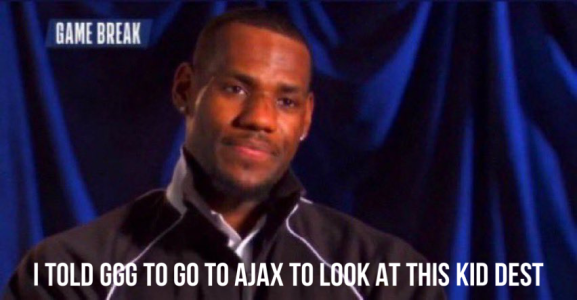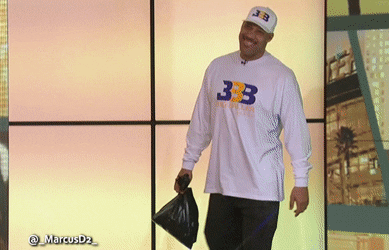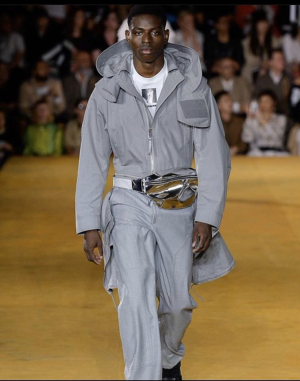This article appears in the May 17 issue of ESPN The Magazine.
They called him America.
But coming from the boys at the settore giovanile, Parma FC's youth academy in Parma, Italy, it sounded like "Ah-MAY-dee-cah." Giuseppe Rossi was just 12 years old and painfully shy, and even though he had an authentic Italian name and grew up speaking the language with his parents and grandparents in Clifton, N.J., as far as his young teammates were concerned he might as well have been named Billy Bob.
"Passare la palla, Ah-MAY-dee-cah," they would shout. "Pass the ball, America."
Exported Goods
Doug McIntyre explains that Neven Subotic is a skilled young defender who also got away from the U.S. team. READ
Advance the story one decade to the summer of 2009. It's early in the second half of a Confederations Cup match between the U.S. and Italy, and the U.S. is leading 1-0. A win against the defending world champions would be a triumph for the Americans, if only they can hold on for the next 45 minutes or so. Eight minutes into the second frame, the sideline official holds aloft an electric sign signaling a substitution. Giuseppe Rossi is coming in at striker. For Italy.
"I saw him warming up," recalls U.S. Soccer president Sunil Gulati, who was in Loftus Versfeld Stadium in Pretoria, South Africa, that night."I was sitting next to Jérôme Valcke, secretary general of FIFA, so I quickly told him Rossi's story, and how the worst thing that could happen from our perspective is that he scores a cracking goal."
More World Cup Coverage
U.S. Men's National Team Blog
Keep up to date with all the latest news and notes, plus exclusive analysis and iterviews, as the Yanks march toward South Africa.
Get me to the World Cup
Check out the video contest where one lucky fan (and a friend) will be on his (or her) way to South Africa.
Inside his first two minutes on the field, Rossi does just that, stripping the ball from U.S. midfielder Benny Feilhaber near the center circle, taking two perfect getaway touches into space and letting fly with his left foot from 30 yards. The blast knuckles in the air, dips and slices a bit, then kisses the inside of the left post on its way into the net. A wonder strike. To salt the wound, Rossi scores a game-icing goal in stoppage time as Italy prevails 3-1. The boy once known as America jumps into the arms of his Italian teammates and later dedicates the goals to his family back in New Jersey, watching on TV.
But to many other U.S. fans tuning in that day, this was the moment when Giuseppe Rossi became a villain. T-shirts emblazoned with his mug and the words "JUDAS, Giuseppe Rossi" popped up for sale online, and the Facebook page "Giuseppe Rossi is a traitor" was created. Make no mistake, his two-goal performance -- especially the jaw-dropping equalizer, Rossi's second international tally for Italy's senior team -- was a dagger, the bitter end to a story U.S. fans had been following for nearly five years, when word first started to spread that a Jersey-born striker had signed with Manchester United and had been playing in Italian national team youth camps. Suddenly, everyone wanted to know just one thing: How did Giuseppe Rossi get away?
As soccer fans know, many players on international rosters were not born in the countries they represent. U.S. national-teamers Feilhaber (Brazil) and Stuart Holden (Scotland) come to mind, as do Polish-born strikers Lukas Podolski and Miroslav Klose, who starred for Germany in 2006. But what makes Rossi's story so remarkable is the fact that no American has ever cracked the ranks of a foreign soccer power like Italy.
Olugbenro Ogunsemore for ESPN The Magazine
Rossi grew up watching Italian soccer and playing in Italy.
Rossi will tell you that Italian soccer wasn't all that foreign to a kid growing up in northern New Jersey surrounded by Italian-American families like his own. The walls in local pizza joints were plastered with photos of the Azzurri, the Italian national team, and Sunday football wasn't the NFL on CBS but rather Serie A on RAI Italia.
Giuseppe's father, Fernando, who died earlier this year at age 60, moved to New Jersey from Italy with his parents when he was a teenager. He worked for 23 years teaching Italian and Spanish and coaching the varsity soccer team at Clifton High, a perennial New Jersey power and Division I college-feeder program. Giuseppe has vivid memories of waking up early to watch the Sunday games on RAI involving clubs like AC Milan and Inter Milan, Juventus and Fiorentina. And, of course, the Azzurri.
In 1994, when the U.S. hosted the World Cup, 7-year-old Giuseppe joined his dad at a sold-out Giants Stadium to watch Italy play Ireland. The boy was starstruck at seeing the likes of Paolo Maldini, Gianfranco Zola and Roberto Baggio sporting their brilliant blue shirts. "They were my team," Giuseppe says. "My childhood heroes."
Over the next few years, as Giuseppe showed signs of his own star potential, Fernando began to plot an unusual course for his son. For three straight summers, beginning when he was 9, Giuseppe went to a soccer camp in Tabiano Terme, near Parma, getting a taste of just how different things were in Italy. No longer was he the kid looking for a game, trying to persuade other kids to play. The game Italians call calcio ("kick") was everywhere.
A month shy of his 13th birthday, Giuseppe boarded a plane with his father and headed for a tryout with the youth academy of Parma FC. "I had no idea if I was good enough," Giuseppe says."But I wanted to try. When I found out I'd made it, I left everything behind, moved to Italy, and my soccer career began."
"IF I COULD HAVE PICKED ANY TEAM IN THE WORLD TO SCORE AGAINST, THE UNITED STATES WOULD HAVE BEEN MY LAST CHOICE."
To help with the transition, Fernando took a leave of absence from teaching to live with Giuseppe in Parma. But the boy was still a nervous wreck. While he was used to speaking Italian with his family, he was unsure of himself around his peers. So he barely spoke in school or on the field. That was when the other boys started calling him America. And, truth be told, Rossi longed for all things red, white and blue. "I was in seventh grade, and I missed stuff like Nickelodeon and Rugrats," he says. He missed his mother, Cleonilde, even more. On the day she made her first visit, after Giuseppe had been in Italy for a couple of months, Fernando had her hide behind a tree to surprise their son; when she appeared, Giuseppe cried in her arms. Over the next four years, Mom and Dad did split duty tending to their teen in Parma.
"The only times I felt comfortable those first few months was playing," Giuseppe says. "The ball is the same everywhere, and you play with your feet, not your mouth. On the field, I was okay."
Actually, he was better than okay. Rossi was exceptional, a shifty dribbler with great instincts in the box and a left foot to die for. In 2001, he was home in New Jersey for the summer when he was invited to a weeklong U.S. under-14 camp in Concord, Mass., where he met and played with future national teamers Michael Bradley and Freddy Adu. It would turn out to be the only time Rossi would ever wear a uniform emblazoned with the U.S. crest.
That fall he returned to Parma, and within two years he got an invite to Italy's under-16 training camp, the youngest youth program in the Italian system. What followed was a chain of events that Giuseppe and his father could only have dreamed about. The next year, Rossi made the U17 team; then he made the U18s. Suddenly, alarm bells started ringing through the halls of U.S. Soccer.
In November 2005, Bruce Arena, the national team coach at the time, invited Rossi to join the Americans for a friendly match in Glasgow. Rossi, who had signed with Man U the year before and was mainly playing on the reserve squad, declined, stating his desire to continue in the Italian program. Never mind that suiting up for the Yanks at that point wouldn't have interfered with that plan, just as playing for the Italian youth squads didn't nullify his U.S. eligibility; players aren't bound to a particular nation until they've been capped at the senior level in an official FIFA match. "We tried to make it as easy as possible for him, and in no way jeopardize his eligibility," Arena says. "But it was pretty clear his dream was to play for Italy. He didn't mislead us for a second."
Michael Regan/Fifa/Getty Images
Rossi's two goals against the U.S. had some fans calling him a traitor.
Of course, for a 5'8", 160-pound kid from New Jersey to think he could someday play for the mighty Azzurri was audacious, to say the least. But Rossi's chances of making the World Cup roster for the U.S. team heading to Germany in 2006 would have been excellent. "We needed help on the left side or maybe a second striker," Arena says. "He could've been a good fit."
The U.S. went three-and-out in Germany, and recruiting Rossi for South Africa 2010 became an immediate priority. When Bob Bradley took over as coach, in May 2007, time was running out. Rossi would turn 21 in February, and that meant his days as a youth player were coming to an end. Once he was capped for Italy's senior squad, it would be ciao, Giuseppe.
"I knew Fernando because I'd recruited some players out of Clifton High when I was coaching at Princeton," says Bradley, a Jersey native (and the older brother of this article's author). "He told me that Giuseppe had all the respect in the world for the U.S. program, but that his goal was to make the Italian team. Basically, that was that."
All that was left from a U.S. perspective was to wait and see how Rossi's Italian dream played out. He didn't make a single misstep. In the summer of 2007, Rossi was called in to play for Italy's U21 team at the European championship. In the summer of 2008, he was called in to play for Italy in the Olympics and ended up the leading scorer in that under-23 competition. By October, it was official. Named to the senior Italian team for a World Cup qualifier against Bulgaria, Giuseppe Rossi became a member of the Azzurri. He would never be allowed to play for the USA.
Whatever people might say about his patriotism, Rossi's achievement can't be overstated. Not only is he one of only two players on the Italian squad who weren't born in Italy, but by playing for Villarreal, in Spain's La Liga, he's also one of only two players who don't earn their living with an Italian club. (That could change soon, as it's hotly rumored that Rossi is headed back to Serie A this summer.) He has broken into one of the most exclusive clubs in sports, against very serious odds. "Rossi is a little champion," Italy manager Marcello Lippi said last summer. "He can play with his left foot or right foot. He can play anywhere on the front line, the way Lionel Messi plays for Barcelona."
High praise, to be sure. But while a spot for Rossi on Italy's 23-man World Cup roster seems likely, there are no guarantees. Plus, with talented strikers like Antonio Di Natale and Alberto Gilardino ahead of him on Lippi's depth chart, any minutes he sees in South Africa will likely come off the bench. That might not have been the case had he chosen a different, safer path. Even before the car accident that severely injured U.S. striker Charlie Davies, a forward of Rossi's quality would have been getting serious minutes for the U.S. "He's a talented young player," says Bradley, choosing his words carefully so as not to disparage any of the strikers in his player pool. But Arena can be more blunt. "He's certainly good enough to play for the U.S.," says the former coach. "I don't think there's any question about that."
When asked to recall the goal that made him the player American fans love to hate, Rossi gets flustered. He grew up admiring Derek Jeter, and like the Yankees captain, Rossi is a perfectly polite interview who loathes talking about himself. "It was great to score, of course, but if I could have picked any team in the world to score against, the United States would have been my last choice," he says. "I root hard for America -- against anyone but Italy."
"HOW CAN I EXPLAIN IT? OFF THE FIELD, I HAVE ALWAYS FELT AMERICAN. ON THE FIELD, I'VE ALWAYS FELT ITALIAN."
As it happens, Rossi got a chance to cheer on his home country as the rest of the Confederations Cup played out last summer. Thanks to the U.S. beating Egypt 3-0 and the Azzurri falling to Brazil by the same margin in the final leg of group play, the Americans advanced while the Italians went home. Upon returning to Spain, Rossi escaped to a resort with his girlfriend. "We were shopping one day along the beach, and I looked up at a TV and saw the U.S. was beating Spain," he says. "We kept walking, and I kept looking for TVs to keep up with the game. When they won, I told my girlfriend to do whatever she wanted the day of the final because I was going to watch. When Brazil came back from 2-0 down, I was truly disappointed."
So what about all those U.S. fans he himself has disappointed, the ones who would love nothing more than to see him starring atop the U.S. attack instead of coming off the bench for Italy?
"How can I explain it?" Rossi says. "The TV I watch, the websites I visit, the music I like -- it's all from America. But Italian soccer is what I grew up watching, and Italy is where I grew up as a player. Off the field, I have always felt American. On the field, I've always felt Italian."
On the streets of Villarreal, Spain, outside Estadio El Madrigal before a late December La Liga match, no one has a clue that the young striker for the home side speaks with a Jersey accent, can call out Garden State Parkway exit numbers when he hears the name of a town and was known as America as a kid. What they do know is that Rossi is a rising star with the Azzurri, the world champions. To the fans of Villarreal, Rossi is simply El Italiano.
The Italian.










































